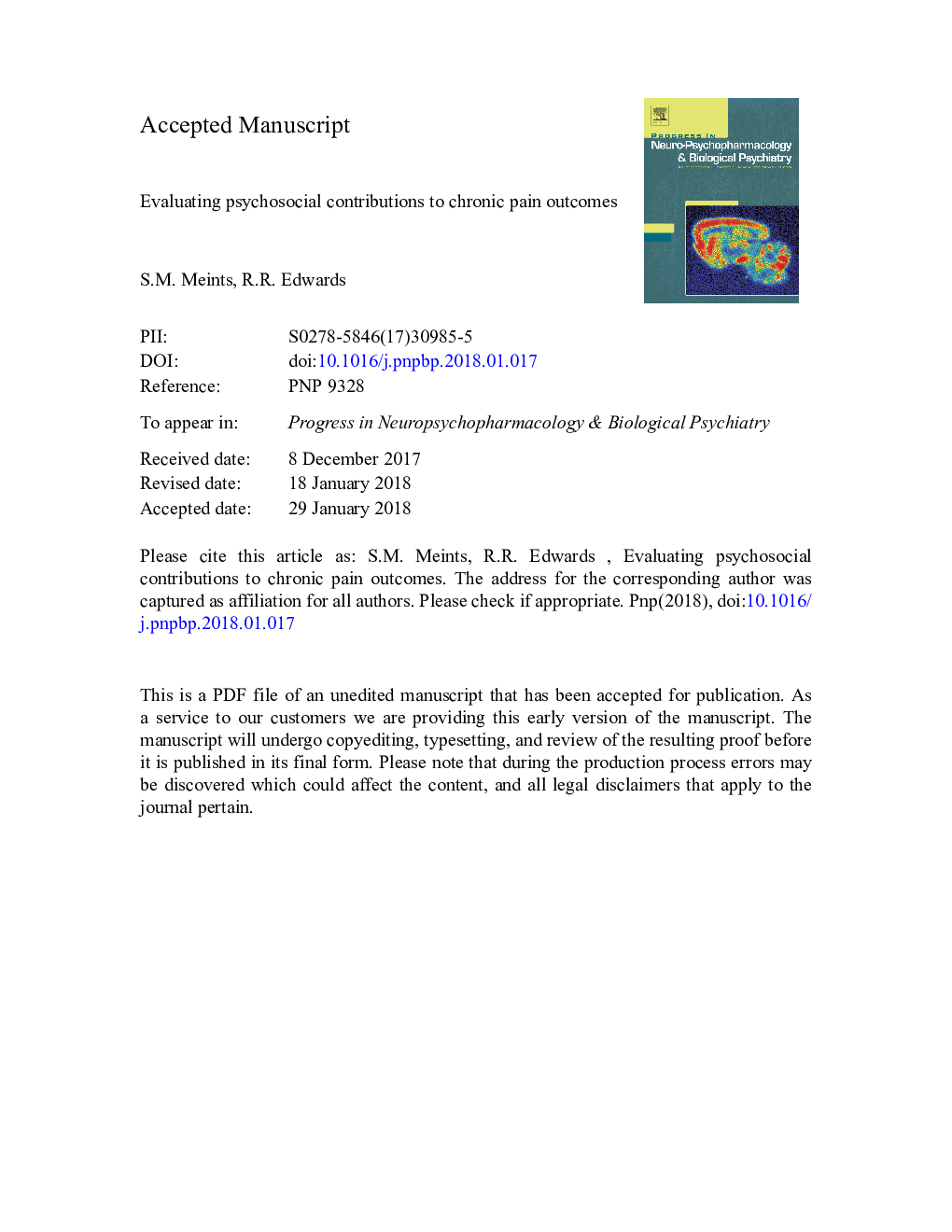| Article ID | Journal | Published Year | Pages | File Type |
|---|---|---|---|---|
| 8950142 | Progress in Neuro-Psychopharmacology and Biological Psychiatry | 2018 | 44 Pages |
Abstract
The biopsychosocial model of pain dominates the scientific community's understanding of chronic pain. Indeed, the biopsychosocial approach describes pain and disability as a multidimensional, dynamic integration among physiological, psychological, and social factors that reciprocally influence one another. In this article, we review two categories of studies that evaluate the contributions of psychosocial factors to the experience of chronic pain. First, we consider general psychosocial variables including distress, trauma, and interpersonal factors. Additionally, we discuss pain-specific psychosocial variables including catastrophizing, expectations, and pain-related coping. Together, we present a diverse array of psychological, social, and contextual factors and highlight the need to consider their roles in the development, maintenance, and treatment of chronic pain conditions.
Related Topics
Life Sciences
Neuroscience
Biological Psychiatry
Authors
S.M. Meints, R.R. Edwards,
